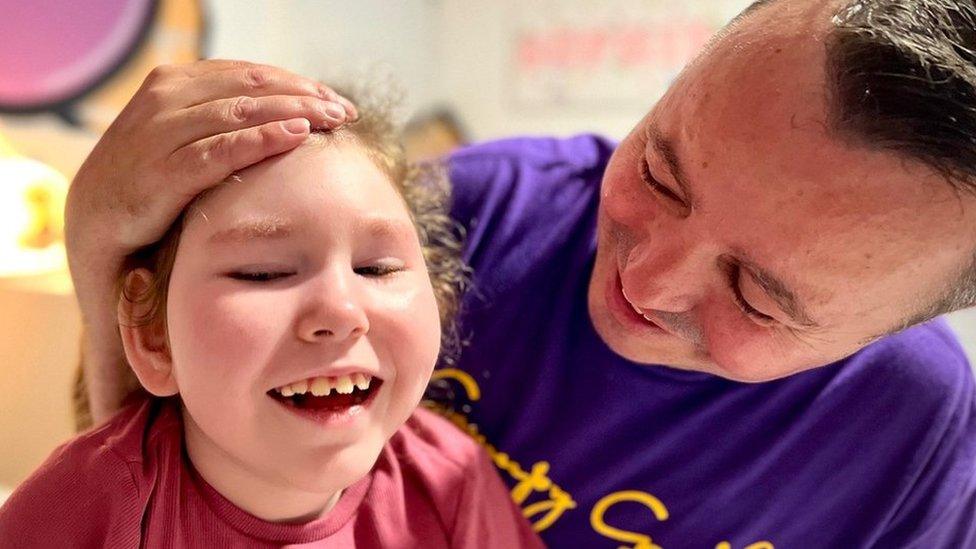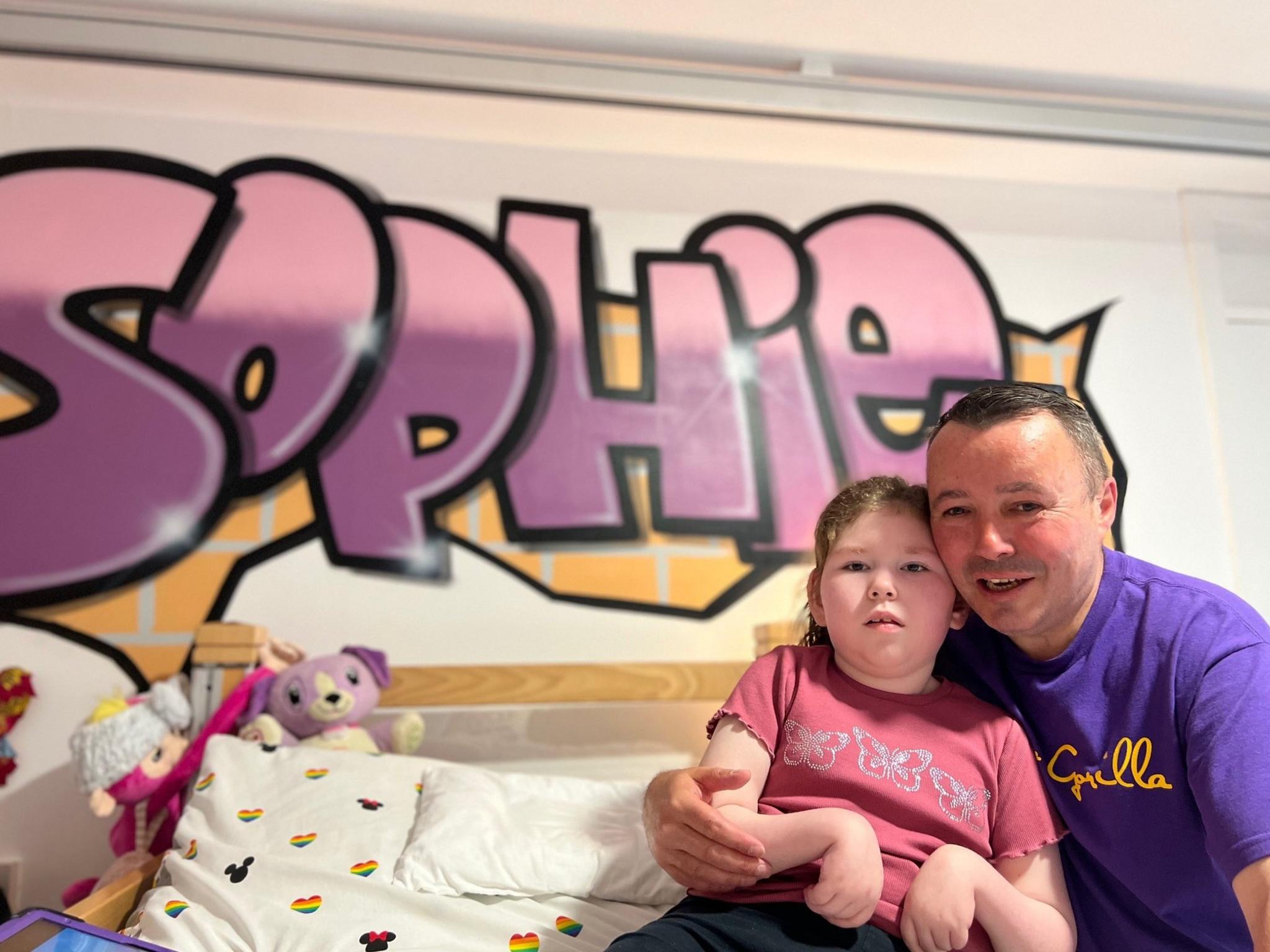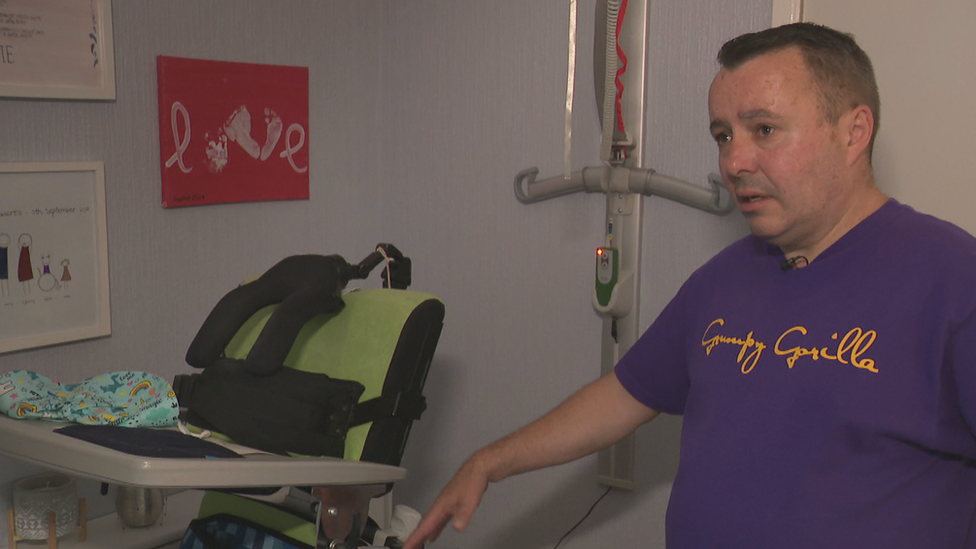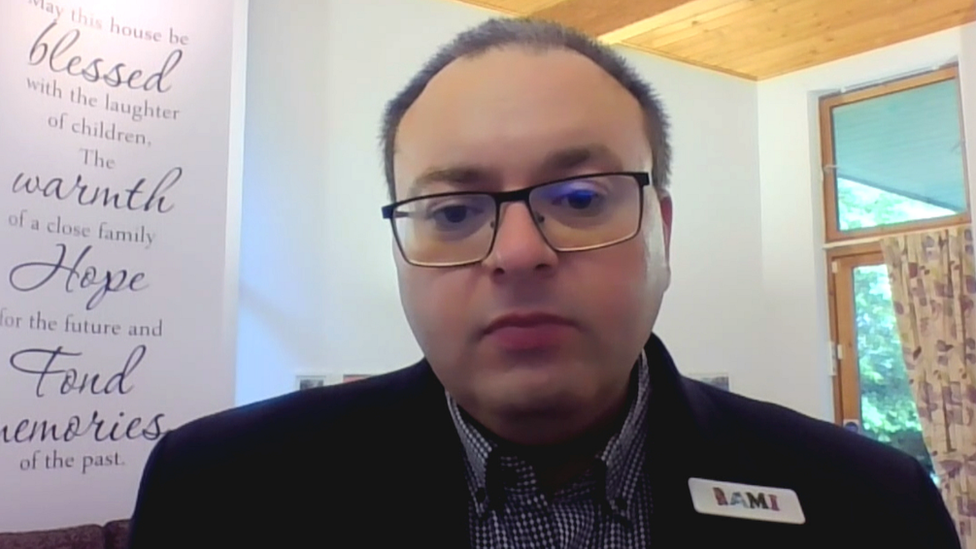Disabled children's families face soaring bills to run vital equipment
- Published

Sophie Stewart has a rare form of epilepsy and requires constant care at home from her parents
Children with life-limiting conditions risk being transferred to hospital because parents can't afford to power vital medical equipment, a charity has warned.
Children's Hospices Across Scotland (Chas) has launched an appeal , externalurging Scots to help terminally-ill children and their families.
The charity says there are currently more than 16,700 children in Scotland with life-shortening conditions.
Harry and Lyndsey Stewart's nine-year-old daughter Sophie has Ohtahara syndrome, external, a rare form of epilepsy that requires round-the clock care.
The Dundee couple are backing the campaign, which is also calling for greater government assistance for those affected.
Harry said: "From day one when Sophie was born we knew that we were in for a tough fight.
"My wife gave up work, I worked 35 years and I had to give up because it was just too much for one person."
Sophie's feeding and suction pumps, as well as ceiling-mounted hoists, are all electric and need to be constantly charged.
Harry said: "They have to be plugged in all the time, because the batteries lose their power and they're not as efficient.
"The washing machine could be on two or three times a day, depending on how Sophie's been, because she is prone to vomiting."

Harry and his wife both gave up work to look after Sophie
The home has to be kept at a certain temperature to help prevent Sophie's seizures, with fans running constantly during summer.
The family's energy bill is currently about £120 a month, but this is set to more than double in the coming months.
Harry said: "Families like ours have got the additional costs of all the equipment that we cannot do without.
"There isn't any way we could scrimp and save, and charge up (the equipment) every couple of weeks.
"So, I think for families like us, there should be additional help."
Harry said that Sophie's equipment is vital to ensure that she can live at home.
He said: "If Sophie's feeding pumps aren't charged I can't feed her.
"If her suction pump isn't charged, if I can't clear her throat. If she has been sick or choking then it has to be a hospital visit, because food gets into the lungs.
"My day starts at six o'clock in the morning and I go to bed at 11 at night, and then I'm on standby from eleven to six.
"I would do it for nothing. But the thing is, you can't afford to do it for nothing, people have to survive."

Harry said that much of Sophie's specialist equipment needs to be constantly charged
Disabled children and young people in Scotland receive an annual payment of £214 from the Child Winter Heating Assistance fund., external
If a customer uses an oxygen concentrator they can get a rebate for the electricity it uses, funded by NHS Scotland.
Rami Okasha, Chas chief executive officer, said if families cannot support children at home, those children risk being taken into hospital.
He said one family he met faced a rise in their monthly fuel bill from £300 to almost £1,000.
Mr Okasha said: "That is unaffordable for most people.
"Social tariffs and special tariffs in the past were hugely helpful.
"But actually the scale of the crisis now is beyond the energy regulator.
"This is a problem that government has to solve and has to solve urgently and it has to do that by providing more support for those people who really need it."

Rami Okasha said some families face unaffordable energy bills
A UK government spokeswoman said it had provided an extra £82m to the Scottish government to help vulnerable families at their discretion.
She added: "As part of our £37bn support package, 8m of the most vulnerable households across the UK will see £1,200 extra support and everyone will receive a £400 discount on their energy bills over winter.
"We are also expanding the eligibility of the £150 Warm Home Discount to three million households."
A Scottish government spokesman said it was committed to providing high-quality child palliative care, regardless of location.
He added: "We are doing all we can within our powers to assist those worst-affected by the rise in energy prices, including providing a further £10m to our Fuel Insecurity Fund.
"We will increase the Scottish Child Payment to £25 per eligible child per week when we extend it to under 16s by the end of the year, a 150% increase within nine months after it was also raised to £20 in April.
"We will continue to press the UK government to use all the levers at its disposal to tackle this emergency on the scale required."


How are you dealing with the rising cost of living? You can let us know your tips and hacks for saving money on things like energy, food and transport. You can also send us any cost of living questions you want us to help answer.
In some cases your question will be published, displaying your name, age and location as you provide it, unless you state otherwise. Your contact details will never be published. Please ensure you have read the terms and conditions.
If you are reading this page on the BBC News app, you will need to visit the mobile version of the BBC website to submit your question on this topic.